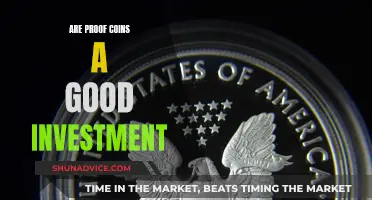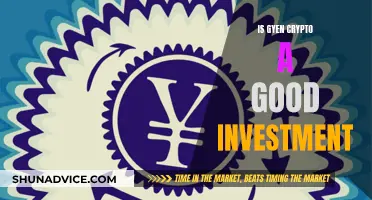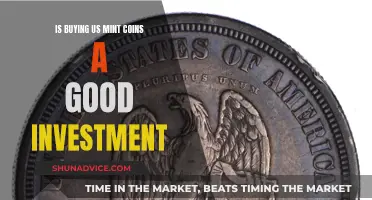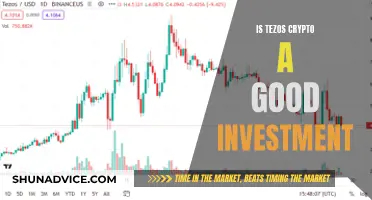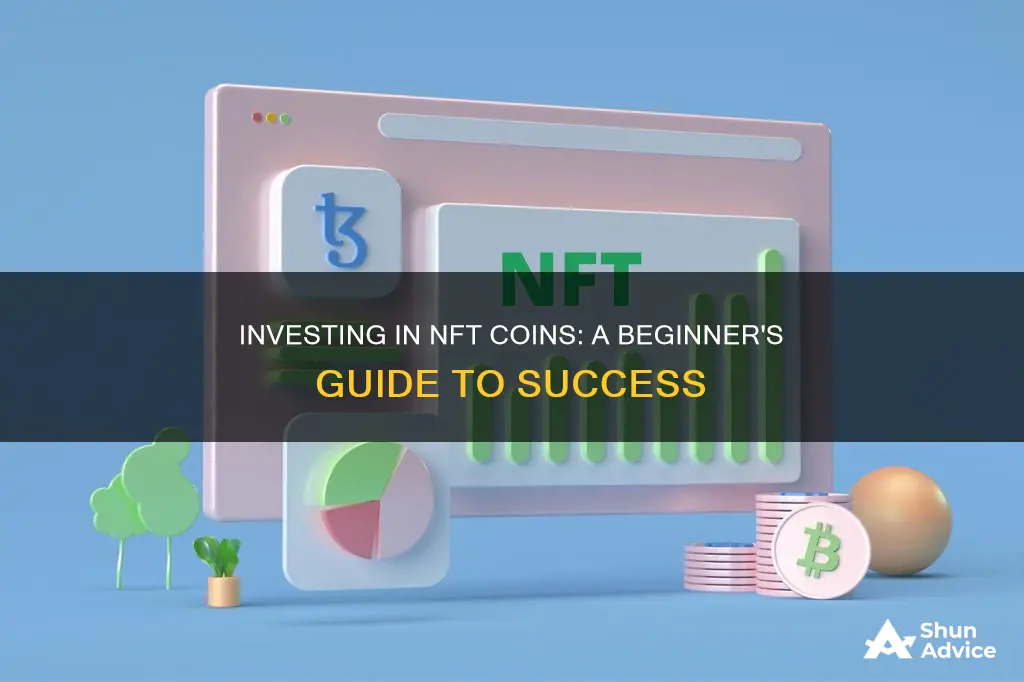
Non-fungible tokens (NFTs) are unique digital assets that are bought and sold online. NFTs are typically bought and sold using cryptocurrencies such as Ethereum, but some platforms allow investors to buy NFTs with credit cards. NFTs are often associated with pieces of creative content such as digital art, music, and sports collectibles. NFTs are recorded on a blockchain, a giant unified global digital ledger that can be read and added to but never overwritten, hacked, or corrupted. NFTs are designed to give buyers ownership of a work, even though the artist can retain the copyright and reproduction rights. NFTs have been criticised for their carbon footprint, lack of protection against fraud, and potential to exacerbate the money laundering problem in the art world. However, NFTs can also provide a consistent source of income for creators and a more flexible model for creative sales and ownership.
| Characteristics | Values | |
|---|---|---|
| Definition | Non-fungible tokens are unique "coins" based on blockchain. No two tokens are alike, and therefore, they are not interchangeable. | |
| Use Cases | NFTs are being used in art, music, sports, real estate, concert tickets, video games, etc. | |
| Creation | To create an NFT, you need a digital wallet that can hold both NFTs and cryptocurrencies. Depending on the currencies accepted by your NFT provider, you will probably need to buy some cryptocurrency, such as Ether. | |
| Purchase | The methodology of purchasing an NFT depends on the marketplace. Some NFT marketplaces may allow investors to buy their tokens with credit cards, while others will require the use of cryptocurrencies directly. | |
| Storage | NFT holders should consider a safer, self-custodied wallet. Depending on which blockchain your NFTs have been minted on, you will need a different kind of wallet. |
What You'll Learn
- NFT marketplaces: OpenSea, Nifty Gateway, Binance NFT, Rarible, etc
- NFT creation: how to create an NFT, e.g. on OpenSea
- NFT purchase: how to buy an NFT, e.g. with cryptocurrency
- NFT storage: how to store NFTs safely, e.g. in a self-custodied wallet
- NFT stocks: how to invest in stocks related to the NFT market

NFT marketplaces: OpenSea, Nifty Gateway, Binance NFT, Rarible, etc
OpenSea is the largest NFT marketplace, with over 200 categories of digital assets and over 4 million NFTs on its website. It is Ethereum-based and user-friendly for beginners. The only charges on OpenSea are for transactions, where OpenSea takes a 2.5% commission. The key cryptocurrencies used on OpenSea are Ethereum, Solana, and USDC.
Rarible, another Ethereum-based NFT marketplace, allows users to buy and sell art, collectibles, video game assets, and NFTs. Ethereum, Flow, and Tezos are all acceptable means of payment on Rarible, which takes 2.5% from both the buyer and seller in transactional fees. Rarible integrates with OpenSea, ensuring that your listed NFT(s) can also be viewed on OpenSea. It also operates a royalty system that allows artists to continue making money from their sold NFTs.
Binance NFT, launched in 2021, is the marketplace of the largest crypto exchange, Binance. It offers digital assets such as artwork, gaming items, and collectibles. The transactional fees are relatively cheap at 1%. Binance also places a premium on security and has one of the lowest transaction fees.
Nifty Gateway, founded in 2018, is a custodial platform, meaning that all the NFTs available on the marketplace are stored in a secure wallet. It supports different payment methods, including credit cards, Gemini Balance, and prepaid ETH. It is owned by Gemini, a crypto exchange founded by the Winklevoss twins. Nifty Gateway has a user-friendly interface and allows for fiat payments.
Other notable NFT marketplaces include SuperRare, a curated digital art-focused marketplace; Crypto.com NFT, which supports NFTs from four blockchains; and Mintable NFT, which has a wide variety of NFTs, including digital art, music, videos, in-game items, and collectibles.
Bitcoin ATMs: Worth the Investment Risk?
You may want to see also

NFT creation: how to create an NFT, e.g. on OpenSea
Creating an NFT is a straightforward process, but it does require some initial setup. Here's a step-by-step guide on how to create an NFT on OpenSea, one of the most popular NFT platforms:
Figure out what you want to create:
NFTs are typically tied to digital art, such as images, audio productions, or short video clips. It's important to ensure that you own the rights to the digital media you use, as creating an NFT from media you don't own may have legal consequences.
Choose a blockchain:
Select a blockchain that will keep a permanent record of your NFT. The most popular NFT blockchain is Ethereum, but there are other options like Solana, Flow, and Polygon. Each blockchain has its own advantages and fees associated with transactions and minting.
Set up an NFT wallet:
Choose a digital wallet that supports your chosen blockchain. Popular options include MetaMask (which supports a wide range of cryptocurrencies and can be used as a mobile app or browser extension), Coinbase Wallet (which supports ERC-721 NFT tokens and Solana collections), and Ledger Nano X (a secure hardware wallet that supports Ethereum and Solana NFTs).
Choose an NFT platform:
Select an NFT platform that allows you to create and list your NFT for sale. OpenSea is the most popular platform, with over $20 billion in trading volume and more than two million NFT collections listed. Other options include Solanart, crypto exchanges like Binance Exchange, and Nifty Gateway.
Create the NFT:
Once you've chosen a platform, follow their specific instructions to create your NFT. For example, on OpenSea, you'll need to connect your wallet, create a smart contract, and upload your NFT's media. You'll also need to provide information such as the NFT name, supply (how many copies you want to mint), description, and any external links or traits.
List the NFT for sale:
After creating your NFT, you can list it for sale on the NFT platform. This usually involves setting a price and specifying how long you want the sale to last. There may be fees associated with listing and selling your NFT, including platform fees and blockchain gas fees.
It's important to note that creating an NFT may incur costs, including platform fees, blockchain gas fees, and the cost of the artwork or media itself. Additionally, it's essential to consider the risks and potential drawbacks of investing in NFTs, such as high fees, a limited buyer pool, and environmental impact.
Digital Currency: Best Investment Options
You may want to see also

NFT purchase: how to buy an NFT, e.g. with cryptocurrency
NFT Purchase: How to Buy an NFT with Cryptocurrency
Non-fungible tokens (NFTs) are unique digital assets stored on a blockchain. They are often used to authenticate ownership of digital art, but can also be used for other assets such as music, GIFs, virtual property in video games, and even physical assets.
Step 1: Set up an Account and Wallet
To purchase an NFT, you will first need to set up an account on an NFT marketplace such as OpenSea, the world's biggest NFT marketplace, or Crypto.com NFT. You will also need to create a crypto wallet, such as MetaMask, and purchase some cryptocurrency, such as Ether (ETH) to fund your transactions.
Step 2: Connect Your Wallet
Link your crypto wallet to your chosen NFT marketplace. This will allow you to browse and bid on NFTs using your crypto funds.
Step 3: Navigate the Marketplace
Most NFT platforms operate as auction-style marketplaces, where you can browse available NFTs and place bids. Some platforms also allow you to "Make an Offer", where you can suggest a price you are willing to pay and the seller can accept or reject it.
Step 4: Purchase Your NFT
Once you have found an NFT you wish to purchase, you can use your crypto wallet balance to complete the transaction. It is important to note that purchasing NFTs is a risky investment, and you should only spend what you can afford to lose.
The Future of Bitcoin Mining: Investing in Companies
You may want to see also

NFT storage: how to store NFTs safely, e.g. in a self-custodied wallet
NFT Storage: How to Store NFTs Safely
Non-fungible tokens (NFTs) are unique digital files on a blockchain network. They can represent anything from artwork to music videos, digital personal identity documentation, academic titles, car ownership, and house ownership. NFTs can be worth thousands or even millions of dollars, so it's important to know how to store them safely.
Common NFT Storage Options
Software Wallets
A software wallet such as MetaMask is considered standard security for NFTs. Everything you do is encrypted on the browser and secured by your password and a 12-24 word seed phrase. However, this form of storage is vulnerable to hackers, especially considering the types of scams that are common today.
InterPlanetary File System (IPFS)
An IPFS is a peer-to-peer hypermedia protocol that allows users to store their decentralised NFTs off-chain, reducing the likelihood of being hacked. It changes how information is distributed by using content-based addressing instead of the standard location-based addressing. When you add a file to IPFS, your file is split into smaller pieces, cryptographically hashed, and given a unique fingerprint called a content identifier (CID). These hashes of data are stored on your computer, and when you request data from an IPFS, the system looks for the same hash of data and verifies that the data is correct by rehashing on the receiver’s computer. If a CID hash is ever produced by a hacker node, you will be notified on your end of the false data.
Cold Storage Hardware Wallets
Cold storage hardware wallets are the most secure option for storing NFTs. They are physical devices that are offline (not connected to the internet), also referred to as cold storage. Cold storage hardware wallets are much more successful at protecting against online hacks and threats. They provide the most security because all of your wallet data is stored completely offline and protected by a device password, PIN code, and 24-word secret phrase. Two-factor authentication is always enabled, and without physically holding the wallet device, it’s impossible to hack and steal the content. The most popular hardware wallets are Ledger, Trezor, and SecuX.
Best Practices for Storing NFTs
- Never give out your wallet’s secret phrase.
- Create complex passwords that contain upper and lower-case characters, numbers, and symbols.
- Store your wallet’s private info in a secure, physical location such as a safe.
- Always log out of your wallet.
- Use a Virtual Private Network (VPN) when browsing the internet with your wallet.
- Only buy your hardware wallet from the manufacturer’s website.
Bitcoin Investment: Worth it or Not?
You may want to see also

NFT stocks: how to invest in stocks related to the NFT market
Non-fungible tokens (NFTs) are unique digital assets that represent ownership of a unique asset, usually a digital asset such as a piece of art, music, or an item within a video game. NFTs are bought and sold on NFT marketplaces, using cryptocurrencies such as Ethereum.
The NFT market is still in its infancy but has already seen explosive growth, with monthly sales volumes reaching $2.6 billion in 2021, according to trading site NonFungible. This has naturally attracted the interest of investors, who are keen to get involved in this emerging market without directly purchasing NFTs themselves.
DraftKings (DKNG)
DraftKings is a well-known name in sports gambling, and it has launched an NFT marketplace, primarily for athlete-related NFTs. The company's system runs on Ethereum Layer 2, which is a scaling solution to handle the increased transaction load on the Ethereum network. DraftKings could be a winner in the sports NFT space, especially if it can attract young collectors who are moving from traditional sports cards to NFTs.
Cloudflare (NET)
Cloudflare is a cloud services provider that enhances the performance of the internet. The company's Cloudflare Stream service allows video creators to tie their content to NFTs, limiting access to those who hold a specific NFT. Cloudflare is an infrastructure play in the NFT space, and its innovative approach could make it a winner in the long term as the company finds new and useful applications for NFTs.
EBay (EBAY)
EBay, one of the original internet marketplaces, now allows the sale of NFTs on its platform. Unlike some other NFT marketplaces, eBay focuses on dollar sales rather than cryptocurrency transactions. This approach could make eBay more accessible to a wider range of buyers who are not familiar with cryptocurrencies. As the cryptocurrency market experiences volatility, eBay could be a stabilizing force in the NFT space.
Shopify (SHOP)
Shopify is an e-commerce giant that allows eligible merchants to sell NFTs through its platform. The company aims to make NFTs more readily available to consumers and provide its merchants with additional revenue streams. Shopify's move into the NFT space could help drive further adoption of this technology and bolster its user base.
Dolphin Entertainment (DLPN)
Dolphin Entertainment is an independent entertainment marketing and content development company. Through its NFT division, Dolphin Digital Studios, the company designs, produces, distributes, and promotes NFTs for clients in various industries, including film, gaming, and music. Dolphin Entertainment was an early adopter of NFT technology, and its shares have more than tripled in value year-to-date. The company is also working on establishing large-scale consumer-facing NFT marketplaces for major sports and entertainment brands.
Funko (FNKO)
Funko is a Washington-based company known for its Funko Pop collectible figurines. The company has expanded into the NFT space, offering its first NFT packs starting at $9.99. Buyers who reveal rarer collectibles through these packs can redeem them for free physical merchandise. Funko's strong brand and collector appeal, combined with its move into the NFT market, make it an interesting prospect for investors.
Buffett's Take on Bitcoin: The Oracle's Investment Strategy
You may want to see also
Frequently asked questions
NFT stands for "non-fungible token". Non-fungible tokens are unique "coins" based on blockchain. No two tokens are alike, and therefore, they are not interchangeable. NFTs are typically associated with pieces of creative content.
To buy an NFT, you will need a digital wallet that can hold both NFTs and cryptocurrencies. Depending on what currencies your NFT provider takes, you'll probably need to buy some cryptocurrency, such as Ether. You can then transfer the cryptocurrency to your preferred wallet and use it to purchase an NFT on a marketplace such as OpenSea or Rarible.
NFTs are extremely popular at the moment, but it's hard to tell if this popularity will last or if they will be a good long-term investment. Many analysts agree that the NFT market is almost purely speculative. As with any investment, it is wise to only invest what you can afford to lose.
Storing your NFTs securely is important for protecting your investments. While some NFT platforms offer users the option to keep their tokens on the platform, there have been several examples of theft from platform-based accounts. A safer option is to use a self-custodied wallet. Depending on which blockchain your NFTs have been minted on, you will need a different kind of wallet.



